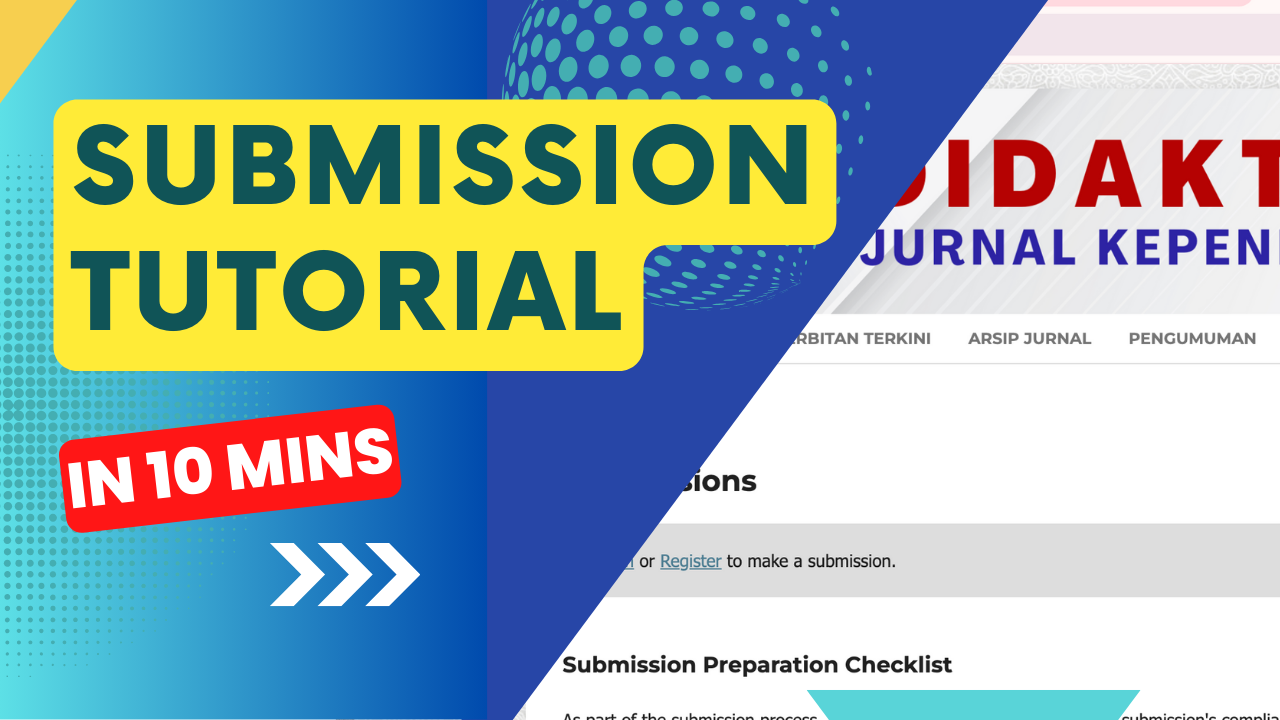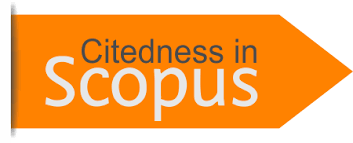The Implementation Of Reflective Teaching Practice By Indonesian EFL Teachers
Abstract
Reflective teaching is one strategy to improve professional development for teachers so that the teaching and learning process is more effective and efficient. This study aimed to find out how Indonesian EFL teachers implement reflective teaching in their classrooms, the impact of implementing reflective teaching, and what difficulties are faced when implementing reflective teaching. This study employed a qualitative, descriptive case study approach. A questionnaire and interviews were used to collect data from 18 teachers, which were then analysed using thematic content analysis. Based on the findings of the research, in the implementation of reflective teaching by EFL teachers, there are five ways: use reflective journals, ask for feedback from students, collaborate with colleagues, record videos, and record audio. Better preparation, improved teacher-student interaction, and improved classroom management are the three effects that EFL teachers notice after implementing reflective teaching. There are three teacher difficulties in implementing reflective teaching: time and workload, lack of peers to collaborate, and knowledge of reflection methods.
Metrics
References
Abbott, M. L. (2009). Research Methods in Applied Linguistics ‐ By Z. Dörnyei. International Journal of Applied Linguistics, 19(2), 207–209. https://doi.org/10.1111/j.1473-4192.2009.00223.x
Aberdeen, T. (2013). Yin, R. K. (2009). Case study research: Design and methods (4th Ed.). Thousand Oaks, CA: Sage. The Canadian Journal of Action Research, 14(1), 69–71. https://doi.org/10.33524/cjar.v14i1.73
Ashraf, H., Samir, A., & Yazdi, M. T. (2016). Reflective Teaching Practice in an EFL Context: A Qualitative Study. International Journal of English Linguistics, 6(7), 48. https://doi.org/10.5539/ijel.v6n7p48
Braun, J. A., & Crumpler, T. P. (2004). The social memoir: an analysis of developing reflective ability in a pre-service methods course. Teaching and Teacher Education, 20(1), 59–75. https://doi.org/10.1016/j.tate.2003.09.006
Braun, J. A., & Crumpler, T. P. (2004). The social memoir: an analysis of developing reflective ability in a pre-service methods course. Teaching and Teacher Education, 20(1), 59–75. https://doi.org/10.1016/j.tate.2003.09.006
Braun, V., & Clarke, V. (2006). Using thematic analysis in psychology. Qualitative Research in Psychology, 3(2), 77–101. https://doi.org/10.1191/1478088706qp063oa
Cirocki, A., & Widodo, H. P. (2019). Reflective Practice in English Language Teaching in Indonesia: Shared Practices from Two Teacher Educators Iranian Journal of Language Teaching Research. Iranian Journal of Language Teaching Research, 7(3), 15–35. https://doi.org/10.30466/ijltr.2019.120734
evki Kömür, S. G. (2016). English Language Teachers’ Reflective Practices for Understanding Their Teaching Processes . Journal of Language Teaching & Learning.
Farrell, T. S. C. (1999). Reflective practice in an EFL teacher development group. System, 27(2), 157–172. https://doi.org/10.1016/S0346-251X(99)00014-7
Farrell, T. S. C. (2018). Reflective Practice for Language Teachers. In The TESOL Encyclopedia of English Language Teaching (pp. 1–6). Wiley. https://doi.org/10.1002/9781118784235.eelt0873
Fonkamo, D., & Zeru, A. (2022). Exploring the impediments on the application of reflective teaching in EFL paragraph writing classes. Cogent Education, 9(1). https://doi.org/10.1080/2331186X.2022.2109648
Gudeta, D. (2022). Professional development through reflective practice: The case of Addis Ababa secondary school EFL in-service teachers. Cogent Education, 9(1). https://doi.org/10.1080/2331186X.2022.2030076
Hendriwanto. (2021). A reflective teaching practicum as a platform for stimulating pre-service teachers’ professional development. Journal of Education for Teaching, 47(4), 624–626. https://doi.org/10.1080/02607476.2021.1941812
Hollweck, T. (2015). Robert K. Yin. (2014). Case Study Research Design and Methods (5th ed.). Canadian Journal of Program Evaluation, 30(1), 108–110. https://doi.org/10.3138/cjpe.30.1.108
Impedovo, M. A. (2016). Becoming a Reflective In-service Teacher: Role of Research Attitude. Australian Journal of Teacher Education, 41(1). https://doi.org/10.14221/ajte.2016v41n1.6
Khanshan, S. K., & Yousefi, M. H. (2020). The relationship between self-efficacy and instructional practice of in-service soft disciplines, hard disciplines and EFL teachers. Asian-Pacific Journal of Second and Foreign Language Education, 5(1), 1. https://doi.org/10.1186/s40862-020-0080-8
Khoshsima, H. (2016). The Impact of Interactionist Dynamic Assessment on Explanation Writing Ability of Intermediate EFL Learners. International Journal of Language and Linguistics, 4(5), 183. https://doi.org/10.11648/j.ijll.20160405.13
Minott, M. A. (2023). Using a modified version of the reflective approach to teaching practicum debriefing in assessing learning outcomes in a university module. Reflective Practice, 24(6), 721–735. https://doi.org/10.1080/14623943.2023.2246909
Moradkhani, S., & Shirazizadeh, M. (2017). Context-based variations in EFL teachers’ reflection: the case of public schools versus private institutes in Iran. Reflective Practice, 18(2), 206–218. https://doi.org/10.1080/14623943.2016.1267002
Newell, S. T. (1996). Practical inquiry: Collaboration and reflection in teacher education reform. Teaching and Teacher Education, 12(6), 567–576. https://doi.org/10.1016/S0742-051X(96)00001-7
Poulou, M. S., Reddy, L. A., & Dudek, C. M. (2019). Relation of teacher self-efficacy and classroom practices: A preliminary investigation. School Psychology International, 40(1), 25–48. https://doi.org/10.1177/0143034318798045
Sadeghi, K., & Khezrlou, S. (2016). The experience of burnout among English language teachers in Iran: self and other determinants. Teacher Development, 20(5), 631–647. https://doi.org/10.1080/13664530.2016.1185028
Sanders, W. L. (2000). Value-added assessment from student achievement data: Opportunities and hurdles. Journal of Personnel Evaluation in Education, 14(4), 329–339. https://doi.org/10.1023/A:1013008006096
Sibahi, R. (2016). Exploring Reflective Practice Among College EFL Teachers in Saudi Arabia. SSRN Electronic Journal. https://doi.org/10.2139/ssrn.2834402
Sparks-Langer, G. M., Simmons, J. M., Pasch, M., Colton, A., & Starko, A. (1990). Reflective Pedagogical Thinking: How Can We Promote It and Measure It? Journal of Teacher Education, 41(5), 23–32. https://doi.org/10.1177/002248719004100504
Vaughn, S., Fall, A.-M., Roberts, G., Wanzek, J., Swanson, E., & Martinez, L. R. (2019). Class Percentage of Students With Reading Difficulties on Content Knowledge and Comprehension. Journal of Learning Disabilities, 52(2), 120–134. https://doi.org/10.1177/0022219418775117
Zeichner, K., & Liston, D. (1987). Teaching Student Teachers to Reflect. Harvard Educational Review, 57(1), 23–49. https://doi.org/10.17763/haer.57.1.j18v7162275t1w3w
Copyright (c) 2024 Nur Sellyta

This work is licensed under a Creative Commons Attribution 4.0 International License.
Dengan mengirimkan naskah artikel, berarti penulis setuju dengan segala kebijakan yang ditetapkan oleh jurnal dan penerbit.
Penulis menyatakan bahwa:
- kebijakan ini telah diketahui dan disetujui bersama oleh semua penulis;
- naskah artikel belum dipublikasikan secara resmi sebelumnya di media ber-ISSN atau ber-ISBN yang terdaftar, kecuali dalam bentuk abstrak atau sebagai bagian dari materi kuliah, atau skripsi/tesis/disertasi yang tidak diterbitkan;
- naskah tidak sedang dalam proses editorial dan dipertimbangkan untuk publikasi di tempat lain;
- publikasi naskah ini telah disetujui oleh semua penulis, institusi afiliasi penulis, otoritas yang bertanggung jawab, dan lembaga di mana kegiatan telah dilakukan;
- naskah berisi materi yang aman dari pelanggaran hak cipta;
Perjanjian Hak Cipta dan Lisensi
- Penulis memiliki hak cipta dan hak kepemilikan lainnya yang terkait dengan artikel.
- Penulis memiliki hak dan diizinkan untuk menggunakan substansi artikel untuk karya-karya penulis berikutnya, termasuk untuk keperluan bahan/materi kuliah dan buku.
- Penulis menyerahkan hak publikasi pertama kepada jurnal dengan di bawah Lisensi Creative Commons (CC BY 4.0).
Pernyataan Lisensi CC BY 4.0
Anda diperbolehkan:
- Berbagi — menyalin dan menyebarluaskan kembali materi ini dalam bentuk atau format apapun;
- Adaptasi — menggubah, mengubah, dan membuat turunan dari materi ini untuk kepentingan apapun, termasuk kepentingan komersial.
Pemberi lisensi tidak dapat mencabut ketentuan di atas sepanjang Anda mematuhi ketentuan lisensi berikut ini.
- Atribusi — Anda harus mencantumkan nama yang sesuai, mencantumkan tautan terhadap lisensi, dan menyatakan bahwa telah ada perubahan yang dilakukan. Anda dapat melakukan hal ini dengan cara yang sesuai, namun tidak mengisyaratkan bahwa pemberi lisensi mendukung Anda atau penggunaan Anda.
- Tidak ada pembatasan tambahan — Anda tidak dapat menggunakan ketentuan hukum atau sarana kontrol teknologi yang secara hukum membatasi orang lain untuk melakukan hal-hal yang diizinkan lisensi ini.





.png)








